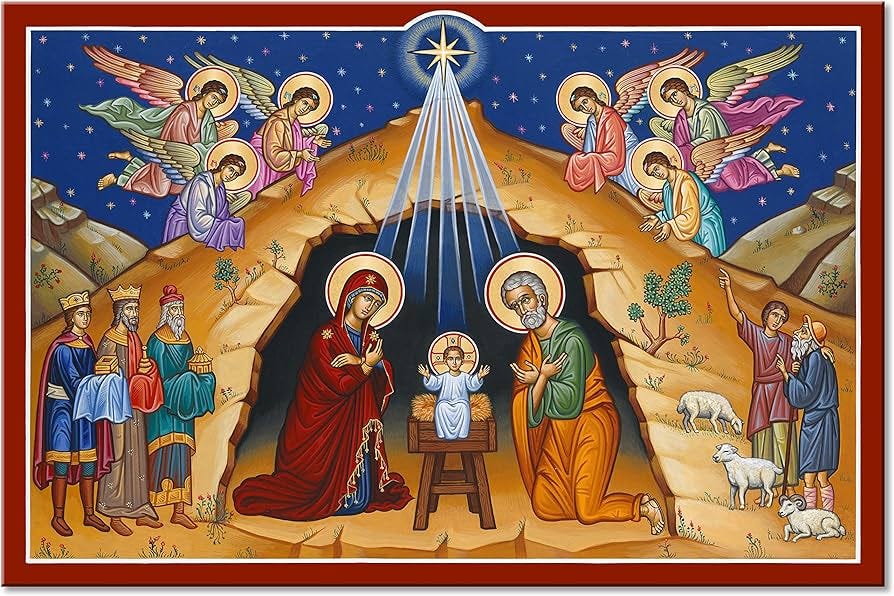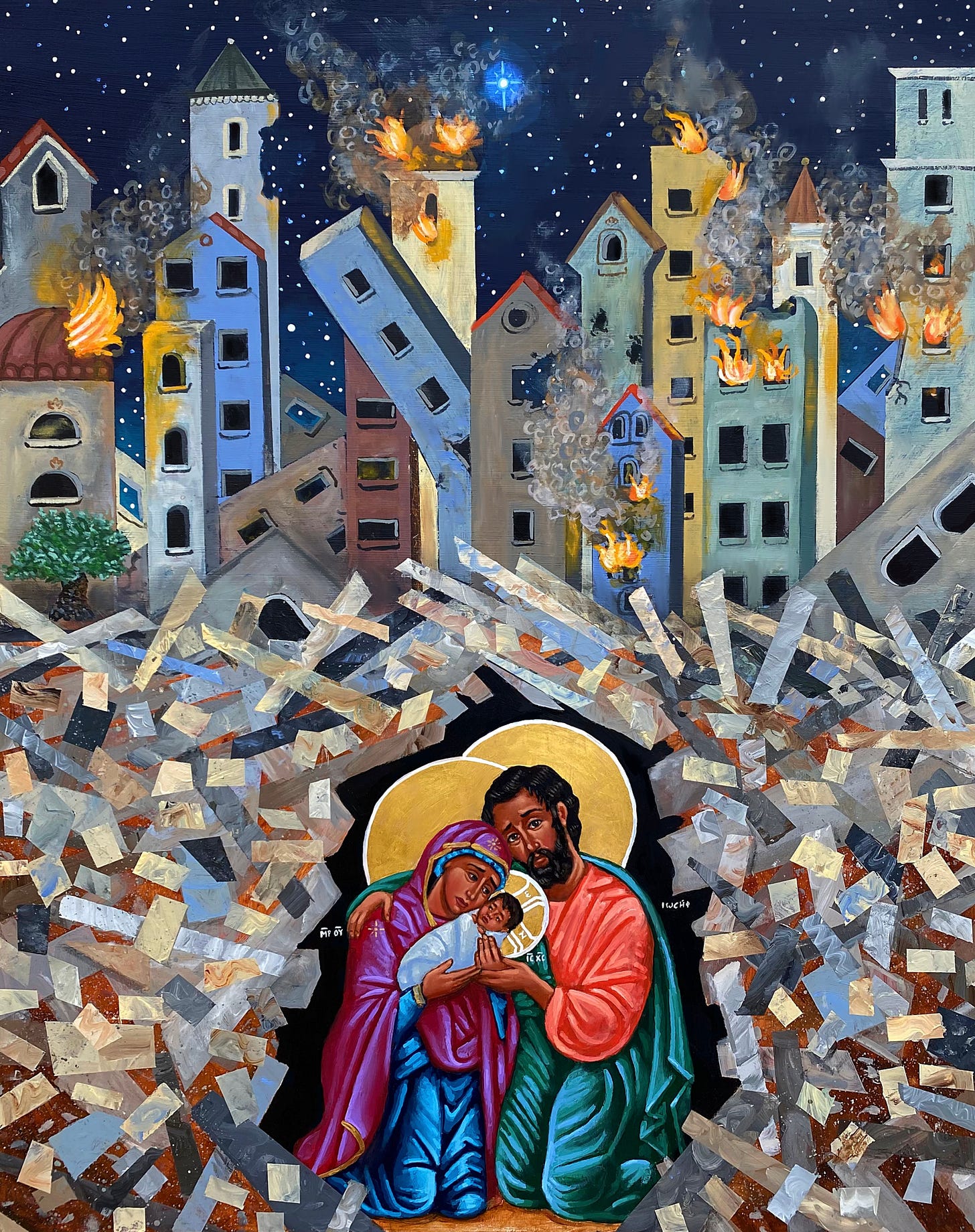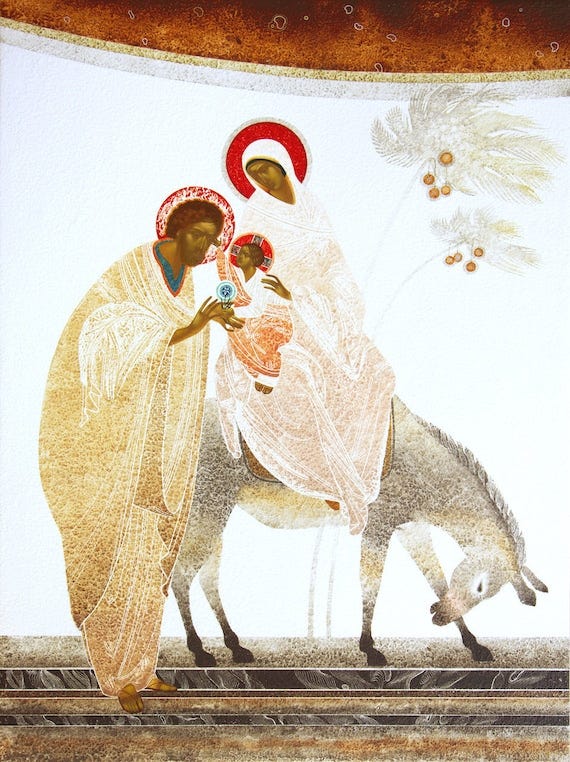Joy in the Darkness
The darkness never conquers the Light. The joy of the Lord always overcomes despair.
In the genre of Nativity stories, John's prologue stands apart, distinct from the narratives recounted by Matthew, Mark, and Luke. While the latter evokes a sense of familiarity with their charming depictions, John's account introduces a different perspective, one less embraced but equally essential.
The narratives of Matthew, Mark, and Luke radiate with the incarnation of the Light of God, entering our world in the most vulnerable of ways, declaring the joy of God entering the world. Yet, they also bear the weight of darkness, which perhaps is why they are more ingrained in our memory. We tend to be more at ease with the darkness that coexisted with the incarnation, overshadowing the brilliant Light that made it possible.
Darkness is a facet of life we all must grapple with. Literally, we navigate unfamiliar streets after sunset, contend with shadows cast on our ceilings, and tread cautiously through our homes at night, avoiding unexpected obstacles in our path. Since the creation of the heavens and the earth, day and night have alternated, and darkness is an inescapable part of our existence.
This same darkness enveloped the events surrounding the birth of Christ, as detailed by Matthew, Mark, and Luke. Their Nativity stories unfold against a backdrop of darkness:
The sound of boots trudging down dusty roads.
Doors being forcibly knocked open.
The scraping of metal on metal as swords are drawn.
Chaotic orders are being barked.
Fathers shoved aside.
Mothers gasping.
Helpless babies are taken from their mothers' arms.
This darkness is, regrettably, more familiar to us than the Light that John presents as a counterpoint. We are acutely acquainted with this darkness, the kind that echoes with the footsteps of refugees seeking safety in foreign lands, the darkness of doors breached by midnight search warrants, the clamor of war playing on our screens from the comfort of our homes, the bigotry and hatred shouted beneath the torch-lit night.
The stories of Matthew, Mark, and Luke, resonating with darkness, are read only once a year. It appears that darkness prevails when fear and self-preservation overshadow hope and love.
We have grown accustomed to living in the shadows, ignoring the cries of refugees, the sound of doors being breached, the echoes of war, and the chants of bigotry and hate. When a child cries for their parent, we often feel helpless and defeated, believing we can do no more.
However, in John's prologue, there is a pivotal detail that we may have overlooked amid our fascination with the Light: "The light shines in the darkness, and the darkness did not overcome it."
The darkness never conquers the Light. The joy of the Lord always overcomes despair.
The incarnation demonstrates that, despite the overwhelming darkness, the Light of Christ always prevails. The Magi did not allow Herod's darkness to overshadow the Light they found in the infant. Mary and Joseph, fleeing to Egypt, did not allow the darkness in their homeland to deter them from returning. Our Creator has consistently banished the darkness that threatens to engulf the cosmos.
Amid the darkness of our world today, characterized by a global refugee crisis, an ailing criminal justice system, seemingly endless wars, the resurfacing of bigotry and hatred, and the painful separation of children from their parents, it's easy to become disillusioned. But (and it’s a big but so you know it does not lie), we must remember what John proclaimed from the outset: "The light shines in the darkness, and the darkness did not overcome it." In every shadow we encounter, the grace of our Lord and Savior remains. The Light will never yield to the darkness.








